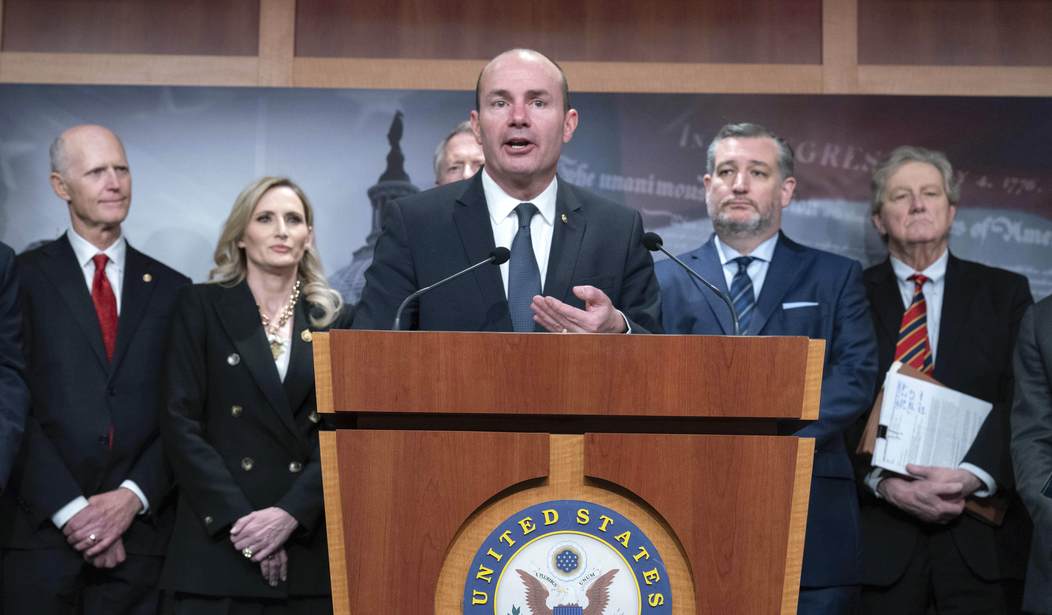It's not hyperbolic to label the Biden presidency the worst presidency in at least modern history. Poll after poll, across various demographics, has consistently shown a majority of voters want Joe Biden gone. Moreover, untold numbers of Americans want Team Biden rules and regulations gone, too.
So here's the thing:
If "the stars and moon align" in the November election, as Alex Conant, a GOP strategist and partner at Firehouse Strategies, put it, congressional Republicans can use a little-known legislative mechanism to undo Biden administration rules. He added:
It has to be a scenario where you have a significant majority taking power and looking to overturn the previous administration.
To Conant's point, the "stars and moon align" reference means Donald Trump winning the presidential election in November, the GOP holding onto the House majority (make that: increasing the majority, for good measure), and gaining control of the Senate.
Tall order? Stranger things have happened.
The Congressional Review Act
The "little-known legislative mechanism" is the Congressional Review Act (CRA), which "establishes procedures for Congress to overturn final rules issued by federal agencies."
Here's how the CRA works:
After an agency's rule is reported to Congress, members of Congress have 60 days to introduce a joint resolution disapproving of the rule. When signed into law, these resolutions of disapproval (RDs) overturn the rule in question and bar agencies from issuing a "substantially similar" rule. The CRA offers two unique mechanisms: the Senate "fast-track" procedures and the "look-back" period.
In essence, the CRA created a process by which quick votes could be used to strike down regulations with simple majority votes in both chambers of Congress.
Given the multiple and ongoing disasters of the Biden presidency — most of them, intentional — the Congressional Review Act would be tantamount to a special Christmas morning stocking stuffer; not only in the stockings of congressional Republicans but also for a majority of decent and hardworking Americans.
Here's more:
CRA resolutions can be brought up for a vote on an expedited basis in the Senate by any member. Generally, legislation requires 60 votes in the Senate to advance, because of the filibuster, which allows a minority of 40 or more to hold up bills. CRA resolutions, though, bypass the filibuster.
If the president vetoes the resolution, Congress can still roll back the rule if two-thirds of lawmakers vote to override the veto.
One limitation of the CRA, though, is that a lawmaker has to file the resolution within 60 working days of the rule being reported. That means that Congress can cancel only relatively recent rules.
The 60 days end up being a much longer time period than just two months, though, because it only counts days that lawmakers are in session and not when the House or Senate is in recess, in district work periods, or off for federal holidays.
So while CRA couldn't be used to go back to the beginning and undo the complete Biden disaster, it could at least be used to reverse damage created within 60 days (or more) of the upcoming election.
Déjà Vu, All Over Again?
Forgive me for the famous Yogi Berra quote, but if the CRA sounds familiar to some, it's not without cause.
When Trump entered office in 2017, he and Republicans used the power of the Congressional Review Act to reverse more than a dozen regulations promulgated during the waning months of the Obama administration.
Biden, who was elected alongside a Democratic-controlled House and Senate, also used the CRA to overturn three Trump-era rules after he was sworn into office in 2021.
The Congressional Review Act hasn't been used, since.
Incidentally, the CRA was enacted as part of the Contract with America Advancement Act of 1996, which passed with overwhelming congressional support and was signed into law by then-President Bill Clinton.
My how times have changed.
Also read:
LEGAL SHOWDOWN: 26 States File Lawsuits Targeting ATF Anti-Gunner Rule
Biden Administration Drops Planned Ban on Menthol Cigarettes Over Fear of Angering Minority Voters














Join the conversation as a VIP Member